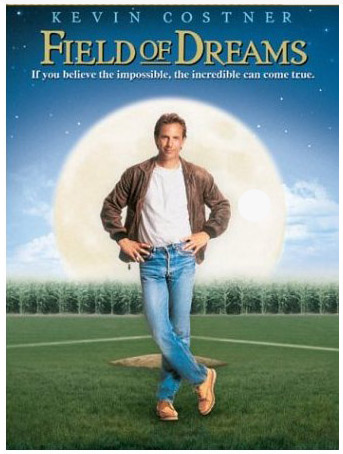How Movies Help Us Live More Reflectively

This newsletter has talked about several ways you can pause more and rush less to make life more memorable. We’ve talked about: The Art of Living in the Moment, the Joy of Journaling, Writing a Resume of Your Life, Revisiting the Past to Enrich the Present, Unplugging from the World and Plugging into Yourself, Developing the Discipline of Doing Nothing, and How “Places” Can Help Us Slow Down and Rediscover What’s Real.
There are so many other things we can talk about like: relishing the little things, celebrating small victories, single-tasking, writing a hand-written letter, learning how to say, “No,” sitting under the stars, or taking a new route home. Today, I want to touch on how movies help us live more reflective lives.
What makes a movie one of your favorites? Is it action? A thriller? Romantic comedy? Fantasy? For me, my favorite movies aren’t confined to a genre. What matters is does the story resonate? Will I remember the theme and ending long-term? Did the story both entertain and motivate me to do something, to think something, or change something? I love movies purely for entertainment value, too. But the ones that etch a mark are the ones that cut me to the core emotionally, and relate to a facet of my life.
How can movies help us be more reflective? Ken Gire, author of The Reflective Life put it this way:
“Movies are particularly good at helping us live more reflective lives. Movies give us a couple of hours in the dark, to laugh, to cry, to think, to lose ourselves in someone else’s story. What they do better than any other medium, is to help us to see. The way the camera moves in for a close-up, emphasizing something important. The way the film speed slows down, extending a moment so we can experience it more fully...
“If we learn to see there, in a movie, it is likely we will learn to see elsewhere. That’s why I love the movies. They help us to see life.”
Movies help us be more reflective in two other ways. They help us to feel—and inspire us to act. When a movie resonates with you emotionally, you’re better equipped to maximize the precious moments in your own life.
One of my favorite movies is Field of Dreams with Kevin Costner, released in 1989. Early in the film Ray Kinsella (Costner) wakes up with his wife and says dejectedly, “I’m 36-years old and I think I’m turning out just like my father.” He viewed his deceased father as a failure. In 1989, I too, was 36 years old. I remember that line striking me. With age 40 on the horizon, I was already going through the self-evaluation process of defining what constitutes a successful career—and life. All young men, while they may respect their fathers, desire to cut their own path, shape their own identity. I wasn’t much different.
In the final minutes of the film, as the baseball team walks off the diamond and fades into the cornfield, Shoeless Joe Jackson turns to Ray, “If you build it, he will come,” he says as he glances over Ray’s shoulder at the catcher standing behind him. Ray turns and slowly walks toward the catcher. As this player slowly removes his catcher’s mask, Ray realizes the catcher is his father, at his age. The music comes up, emotion sweeps over the audience as Ray asks his father if they can play catch. In a simple game of catch, two hearts are reconciled. Ray can barely speak. Neither can we.
It's a powerful film of “implied reconciliation” between one of the most vital relationships on earth--a father and a son. Most importantly, it inspires us to embrace—and cultivate—all of our intimate relationships, while we still can.
Richard Paul Evans, bestselling author of The Christmas Box and 35 other novels said, “For every now and then, we find that one book that reaches us deep inside and introduces us to ourselves. And, in someone else’s story, we come to understand our own.” The same is true of movies.
As far as my fears at age 36 of turning out just like my father? I should be so lucky.
###
Forgiveness and reconciliation are compelling themes and I enjoyed addressing them between a father and son, and a young couple in my novel, The Glimpse. To learn more about it, click on the NOVELS tab here on my website.
Please feel free to ask me a question, leave a comment, or join my mailing list by subscribing to my FREE newsletter, PAUSE MORE. RUSH LESS. below. We'll talk about how to slow down your life to live it more fully.

